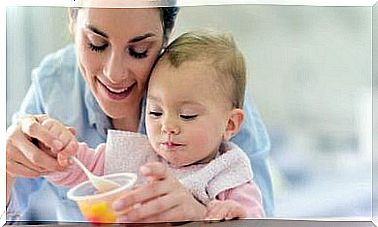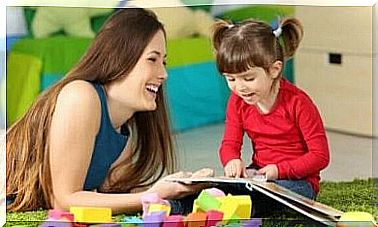Being The Parent Of A Child With ADHD

We are currently being overwhelmed by information that is actually irrelevant to our survival. Young children grow up surrounded by various stimuli that can easily draw their attention or concentration in different directions. So it is not particularly surprising that it is becoming increasingly common for a child to be diagnosed with ADHD or some other attention deficit disorder.
When you are the parent of a child with ADHD, you have to work extra hard to try to understand and support your child. At the same time, you must constantly search for information that helps you meet the child’s needs.
What are Attention Deficit Disorders?
When a child has significant and disabling difficulty focusing, it is called an attention deficit disorder. This means that the child has a persistent behavioral pattern of inattention and difficulty organizing. It does not have to include hyperactivity and impulsivity, but often does.

The fifth edition of the Diagnostic and Statistical Manual of Mental Disorders (DSM-5) sets out the conditions for the diagnosis of ADHD. To confirm a lack of attention, a child must show six or more of the following symptoms of inattention for a period of at least 6 months:
- Is often unaware of details or makes careless mistakes in school work, working life or other activities.
- Often finds it difficult to keep their attention on tasks and also on fun activities and games.
- Does not often seem to listen to direct addresses.
- Rarely follows given instructions and fails to complete schoolwork.
- Often has difficulty organizing tasks and activities.
- Often avoids, disapproves or is reluctant to perform tasks that require mental perseverance.
- Often loses things that are necessary for tasks or activities.
- Get easily distracted by irrelevant external stimuli.
- Is often forgetful and sloppy in daily life.
To be the parent of a child with ADHD
There are many children today with attention deficit disorders, but there is no reason to worry too much.
Instead, as a parent, you must accept it and help your child in his or her daily life by introducing a series of simple, educational, and practical habits. It helps the child meet his challenges and grow and develop to his full potential.
Guidelines for helping children with ADHD
An attention deficit disorder can make a child unable to complete tasks, not seem to listen, constantly lose things, and so on. This can play a role in creating problems in the following key areas:
- Learning
- Behavior
- Social skills
Parents of children with attention difficulties should help them alleviate these problems by following a series of guidelines, such as those described below.

To begin with, it is important to create a structured and orderly home environment. This allows the child to predict their schedule and routines. Parents of children with attention deficit disorders should also offer games and activities that stimulate and train their attention.
Below are just a few examples:
- Puzzle
- Stories and fairy tales
- Labyrinths
- Building blocks
- Word games and games
Guidelines for effective communication with children with ADHD
When you are the parent of a child with ADHD, it is important to use clear and direct communication. This is especially true when making inquiries or telling the child to do something.
- Only call the child by his or her name when it is close and address the child by looking him or her in the eyes and using a calm and friendly tone.
- Go through instructions in a clear and precise way. If necessary, parents can ask their children to repeat what they have said to make sure they have understood it all properly.
- Use short and clear sentences and give instructions one at a time, in a way that can not be misinterpreted.
- Keep a reasonable distance and avoid physical contact when urging your child to do something.
- Finally, it is worth mentioning that positive reinforcement is important. When children perform tasks and display good behavior, parents can give verbal encouragement, hugs, praise or other loving and positive gestures. It makes the child feel satisfied and will be more likely to repeat the desired behavior.









